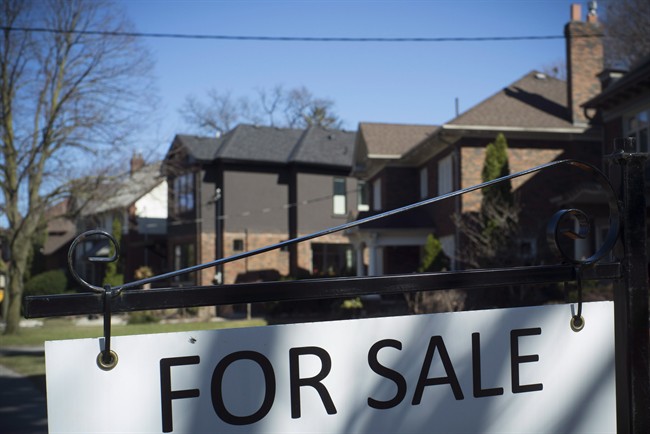There are an estimated 96,000 British Columbians who did not fill out a speculation tax declaration by the March 31 deadline.

The provincial government is now set to send out reminders to those who did not declare.
“Perhaps they lost the form, were out of town, didn’t realize they had to fill it, or that both they and their spouse if they are title had to fill it out, they will get a reminder letter. We are now at 94 per cent, which for a brand new tax is extraordinary,” Finance Minister Carole James said.
The province decided to bring in negative billing, requiring British Columbians who live in an area with the speculation and vacancy tax to opt out of the tax.
READ MORE: B.C. government to start better tracking on empty homes and rental stock as part of Speculation Tax
If you own only one home and are a British Columbian you are exempt from the tax, but must still fill out a declaration.
“Please note that if your property has more than one owner, even if the other owner is your spouse, a separate declaration must be made for each owner,” reads the government’s website.
The province will start sending out speculation tax bills in June. Originally some British Columbians were told if they missed the deadline, they would be fined. James says that is no longer the case and they want to give people as long as they need to declare.
WATCH (aired March 29, 2019): Speculation tax exemption deadline looms

“If they haven’t filled it out and they are exempt, they won’t have to pay the tax,” James said.

Get breaking National news
The province says the goal of the tax is to target foreign and domestic speculators who own homes in B.C. but do not pay tax here.
The government also hopes the tax will turn empty homes into housing and raise revenue to support affordable housing.
WATCH (aired March 5, 2019): Village of Belcarra asks for speculation tax exemption

The speculation tax has been criticized by mayors in Belcarra, Kelowna, Langford and West Kelowna for hurting the local housing market. The tax was brought in as a crucial part of the B.C. government’s housing affordability plan.
James says she will start meeting with mayors in the speculation tax zone area at the end of June and the beginning of July. The finance minister will bring the recently collected data and she encourages municipalities to bring data to support why individuals or communities themselves should be exempted.
“We need to take a look at the evidence. We need to take a look at the information that comes in from across the province,” James said.
“If changes need to be made, I have said all along we would take a look at that.”
There are a number of situations where a homeowner can be eligible for an exemption. For British Columbians who own a second home that they choose to leave vacant, there is a credit available on the first $400,000 of a home’s value, meaning homes worth less than that are exempt.
There are also the following exemptions for second homes or homes owned by people living primarily outside of B.C.:
- People with tenants
- People going through hardships
- People receiving medical treatment
- Persons with disabilities
- People going through divorce or separation
- People who commute long distances for work
- People on sabbatical or away temporarily for work
- Homes undergoing upgrades and renovations
The tax includes all municipalities within the Capital Regional District excluding Salt Spring Island, Juan de Fuca Electoral Area and the Southern Gulf Islands. It also includes municipalities within the Metro Vancouver Regional District, excluding Bowen Island and the Village of Lions Bay.
WATCH (September 12, 2018): B.C. mayors call for changes to speculation tax

The other taxable communities are Abbotsford, Mission, Chilliwack, Kelowna, West Kelowna, Nanaimo and Lantzville.
The speculation and vacancy tax rate will vary, depending on your residency and where you pay income tax.
Foreign owners and satellite owners will pay two per cent on the assessed value of a residential property. A satellite family is an individual or spousal unit where the majority of their total worldwide income for the year is not reported on a Canadian tax return.
British Columbians with multiple homes that are not rented out for more than six months of the year, and other Canadian citizens or permanent residents, will pay a tax of 0.5 per cent.








Comments
Want to discuss? Please read our Commenting Policy first.